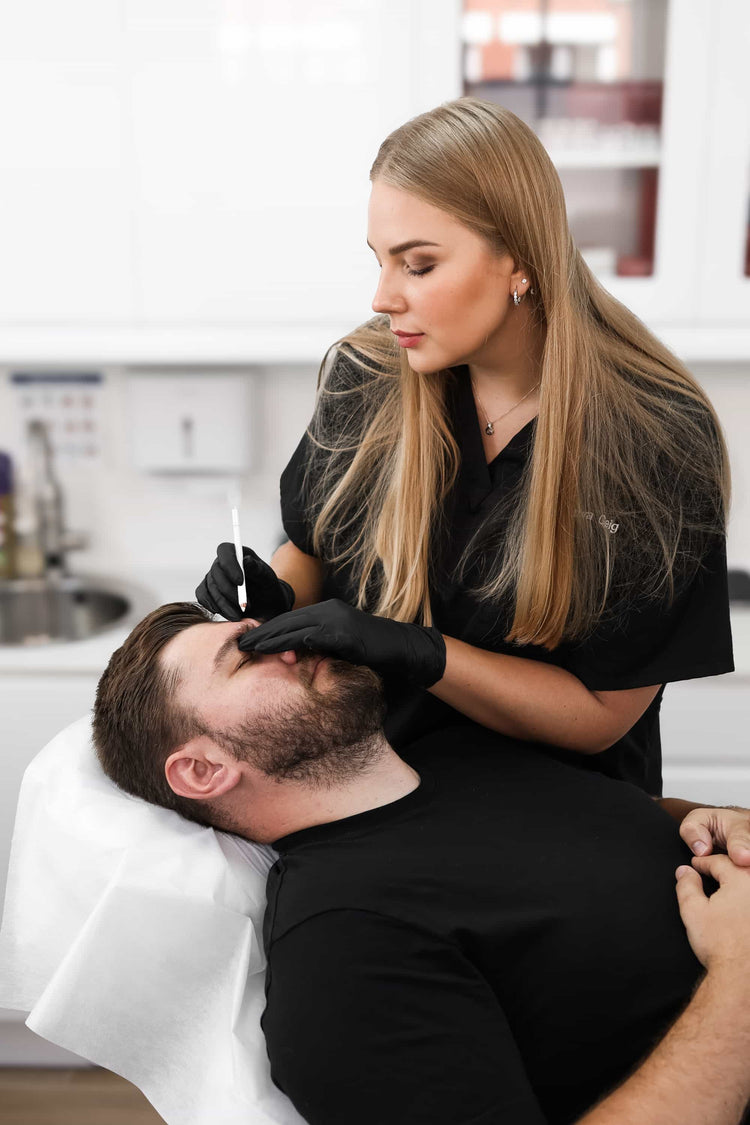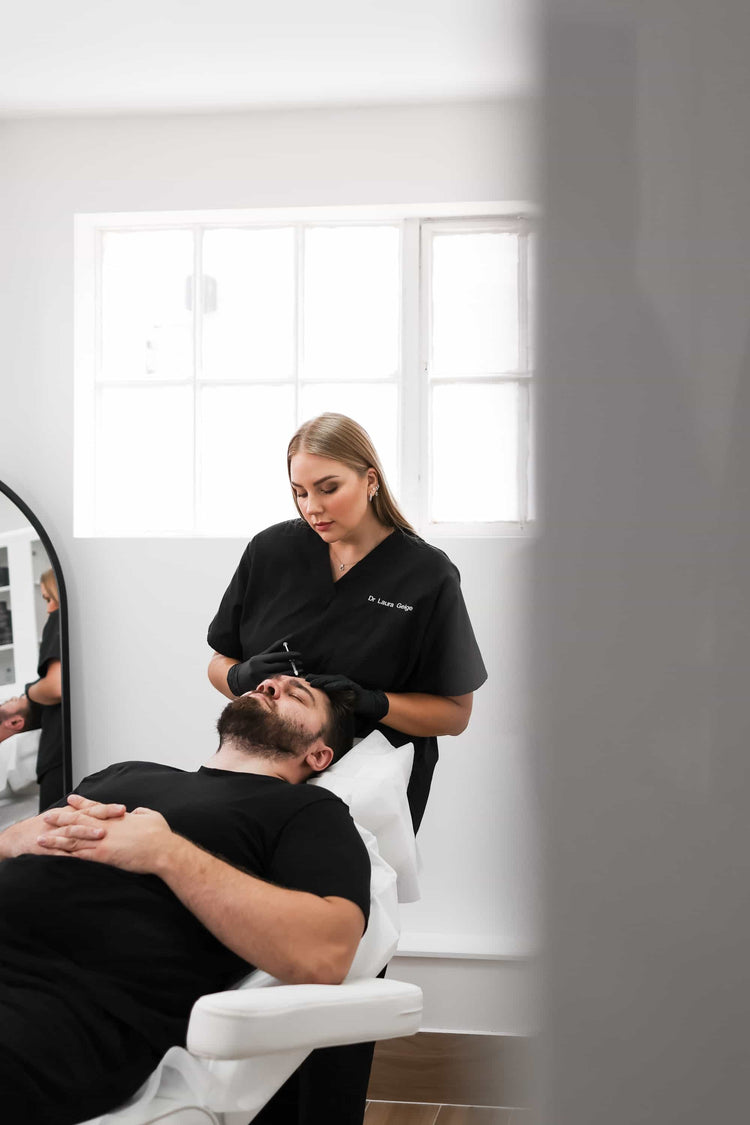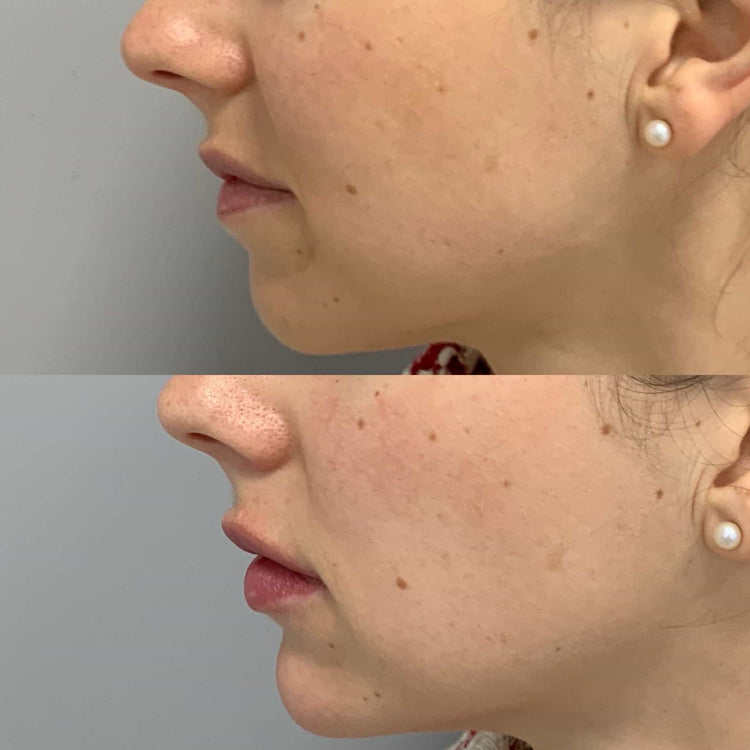Legal Requirements
Anti-wrinkle injections have become increasingly popular, offering individuals a way to reduce the appearance of fine lines and wrinkles. However, it is crucial to understand the legal requirements surrounding these procedures in the UK. From practitioner qualifications to patient consent and aftercare instructions, adhering to specific regulations ensures safety and ethical practice within this growing field.
Practitioner Qualifications
In the UK, administering anti-wrinkle injections, commonly known as Botox, is regulated by law. Only qualified healthcare professionals are permitted to perform these procedures. This typically includes doctors, nurses, or dentists with appropriate training and experience in aesthetic medicine.
To practice legally, practitioners must be registered with a relevant regulatory body, such as the General Medical Council (GMC) for doctors or the Nursing and Midwifery Council (NMC) for nurses. They should also possess specific qualifications in aesthetic medicine, demonstrating their knowledge and competence in administering anti-wrinkle injections safely and effectively.

Training and Certification
Patients seeking anti-wrinkle injections should ensure that the practitioner they choose is fully qualified and registered. It’s important to inquire about their training, experience, and the regulatory body under which they are registered.
Informed consent is paramount in any medical procedure, including anti-wrinkle injections. Practitioners must thoroughly explain the procedure, potential risks and benefits, and alternative treatments to patients before they agree to receive treatment.
Aftercare instructions are essential for optimal results and minimizing complications. Practitioners should provide clear guidelines on wound care, activity restrictions, and potential side effects. Patients should follow these instructions carefully to ensure a safe and satisfactory outcome.
Product Registration
Adhering to legal requirements ensures safety and ethical practice within the field of anti-wrinkle injections in the UK.
Practitioners must be qualified healthcare professionals registered with relevant bodies like the General Medical Council or the Nursing and Midwifery Council.
They should also possess specific aesthetic medicine qualifications demonstrating their competence in administering these injections safely and effectively.
Patients should verify a practitioner’s qualifications and registration before proceeding with treatment.
Informed consent is crucial; practitioners must thoroughly explain the procedure, potential risks and benefits, and alternative treatments to patients prior to their consent.
Aftercare instructions are essential for optimal results and minimizing complications. Practitioners should provide clear guidance on wound care, activity restrictions, and potential side effects.
Informed Consent
In the UK, administering anti-wrinkle injections, commonly known as Botox, is strictly regulated by law. Only qualified healthcare professionals are permitted to perform these procedures. This typically includes doctors, nurses, or dentists with specialized training and experience in aesthetic medicine.
To legally practice, these practitioners must be registered with a relevant regulatory body such as the General Medical Council (GMC) for doctors or the Nursing and Midwifery Council (NMC) for nurses. Furthermore, they should possess specific qualifications in aesthetic medicine, demonstrating their knowledge and competence in administering anti-wrinkle injections safely and effectively.
Patients seeking these treatments must ensure that their chosen practitioner is fully qualified and registered with the appropriate regulatory body. Inquiring about their training, experience, and registration status is crucial before proceeding with treatment.
Informed consent is a cornerstone of any medical procedure, including anti-wrinkle injections. Practitioners are legally obligated to thoroughly explain the procedure itself, potential risks and benefits, as well as alternative treatments available to patients. This ensures that patients make an informed decision about their treatment based on a clear understanding of all aspects involved.
Aftercare instructions play a vital role in optimizing treatment results and minimizing the risk of complications. Practitioners must provide patients with clear guidelines on wound care, activity restrictions, and potential side effects to expect. Adherence to these instructions is essential for ensuring a safe and satisfactory outcome.
Record Keeping
Administering anti-wrinkle injections, commonly known as Botox, is strictly regulated in the UK. Only qualified healthcare professionals are allowed to perform these procedures. This typically includes doctors, nurses, or dentists with specialized training and experience in aesthetic medicine.
To legally practice, these practitioners must be registered with relevant regulatory bodies like the General Medical Council (GMC) for doctors or the Nursing and Midwifery Council (NMC) for nurses. Additionally, they should possess specific qualifications in aesthetic medicine, demonstrating their knowledge and competence in administering anti-wrinkle injections safely and effectively.
Patients seeking these treatments must ensure that their chosen practitioner is fully qualified and registered with the appropriate regulatory body. It is important to inquire about their training, experience, and registration status before proceeding with treatment.

Informed consent is a fundamental aspect of any medical procedure, including anti-wrinkle injections. Practitioners are legally obligated to provide patients with a comprehensive explanation of the procedure, potential risks and benefits, as well as alternative treatment options. This ensures patients make an informed decision about their treatment based on a thorough understanding of all relevant factors.
Aftercare instructions play a vital role in optimizing treatment results and minimizing the risk of complications. Practitioners must provide patients with clear guidelines on wound care, activity restrictions, and potential side effects to expect. Adhering to these instructions is essential for ensuring a safe and satisfactory outcome.
Adverse Effects Management
In the UK, administering anti-wrinkle injections, commonly known as Botox, is strictly regulated by law. Only qualified healthcare professionals are allowed to perform these procedures. This typically includes doctors, nurses, or dentists with specialized training and experience in aesthetic medicine.
To legally practice, these practitioners must be registered with relevant regulatory bodies like the General Medical Council (GMC) for doctors or the Nursing and Midwifery Council (NMC) for nurses. Additionally, they should possess specific qualifications in aesthetic medicine, demonstrating their knowledge and competence in administering anti-wrinkle injections safely and effectively.
Patients seeking these treatments must ensure that their chosen practitioner is fully qualified and registered with the appropriate regulatory body. It is important to inquire about their training, experience, and registration status before proceeding with treatment.
Informed consent is a fundamental aspect of any medical procedure, including anti-wrinkle injections. Practitioners are legally obligated to provide patients with a comprehensive explanation of the procedure, potential risks and benefits, as well as alternative treatment options. This ensures patients make an informed decision about their treatment based on a thorough understanding of all relevant factors.
Aftercare instructions play a vital role in optimizing treatment results and minimizing the risk of complications. Practitioners must provide patients with clear guidelines on wound care, activity restrictions, and potential side effects to expect. Adhering to these instructions is essential for ensuring a safe and satisfactory outcome.
Insurance and Liability
Insurance and liability are crucial considerations in any medical procedure, including anti-wrinkle injections. Practitioners performing these procedures must have appropriate professional indemnity insurance to cover themselves against potential claims arising from complications or adverse reactions. Patients should also be aware of the risks involved and consider their own insurance coverage for any potential issues related to the treatment.
Professional Indemnity Insurance
Insurance and liability are crucial considerations in any medical procedure, including anti-wrinkle injections. Practitioners performing these procedures must have appropriate professional indemnity insurance to cover themselves against potential claims arising from complications or adverse reactions.
Patients should also be aware of the risks involved and consider their own insurance coverage for any potential issues related to the treatment.
Patient Liability Waivers
Insurance and liability are crucial considerations in any medical procedure, including anti-wrinkle injections.
Practitioners performing these procedures must have appropriate professional indemnity insurance to cover themselves against potential claims arising from complications or adverse reactions.
Patients should also be aware of the risks involved and consider their own insurance coverage for any potential issues related to the treatment.
Patient liability waivers are legal documents that aim to reduce a practitioner’s liability by outlining the risks associated with anti-wrinkle injections and obtaining informed consent from the patient.
While these waivers can provide some protection for practitioners, they do not eliminate all liability.

Advertising and Marketing
Anti-wrinkle injections have surged in popularity, offering individuals a way to reduce the appearance of fine lines and wrinkles. However, navigating this field requires understanding the legal framework surrounding these procedures in the UK.
Truthful Claims
Truthful advertising is fundamental in all marketing, including that related to anti-wrinkle injections.
Claims made about the effectiveness, duration, or safety of treatments must be accurate and substantiated by scientific evidence.
Misleading or exaggerated claims can lead to legal repercussions and damage consumer trust.
Advertisers must ensure their marketing materials comply with advertising regulations set by authorities like the Advertising Standards Authority (ASA) in the UK.
This includes avoiding false or unsubstantiated claims, using clear and unambiguous language, and presenting information fairly and objectively.
Regulation of Advertising
Anti-wrinkle injections have surged in popularity, offering individuals a way to reduce the appearance of fine lines and wrinkles. However, navigating this field requires understanding the legal framework surrounding these procedures in the UK.
Truthful advertising is fundamental in all marketing, including that related to anti-wrinkle injections.
- Claims made about the effectiveness, duration, or safety of treatments must be accurate and substantiated by scientific evidence.
- Misleading or exaggerated claims can lead to legal repercussions and damage consumer trust.
- Advertisers must ensure their marketing materials comply with advertising regulations set by authorities like the Advertising Standards Authority (ASA) in the UK.
- This includes avoiding false or unsubstantiated claims, using clear and unambiguous language, and presenting information fairly and objectively.
Enforcement and Penalties
While anti-wrinkle injections offer a popular way to minimize wrinkles, administering them legally in the UK requires strict adherence to regulations. Penalties for non-compliance can be severe, including fines or even imprisonment for practitioners who violate these rules.
Regulatory Body Oversight
Enforcement of these regulations is carried out by various regulatory bodies, such as the General Medical Council (GMC) for doctors and the Nursing and Midwifery Council (NMC) for nurses. These bodies have the authority to investigate complaints, impose sanctions on practitioners who breach regulations, and take action against unqualified individuals performing anti-wrinkle injections.
Penalties for non-compliance can be severe, including fines, suspension from practice, or even permanent removal from the register. In cases of serious negligence or misconduct, criminal charges may also be pursued.
Disciplinary Action
Enforcement and penalties for illegal or unethical practices related to anti-wrinkle injections in the UK are significant. Regulatory bodies like the General Medical Council (GMC) and the Nursing and Midwifery Council (NMC) monitor practitioners and investigate complaints.
Practitioners who violate regulations face serious consequences, including fines, suspension from practice, or even permanent removal from their professional register. In cases of negligence or misconduct, criminal charges may also be pursued. The aim is to protect patients and maintain the integrity of aesthetic medicine practices.
Legal Consequences
Enforcement and penalties for illegal or unethical practices related to anti-wrinkle injections in the UK are significant. Regulatory bodies like the General Medical Council (GMC) and the Nursing and Midwifery Council (NMC) monitor practitioners and investigate complaints.
- Fines: Practitioners found violating regulations can be subjected to hefty fines.
- Suspension from practice: A temporary or permanent suspension from practicing may be imposed, preventing them from administering treatments.
- Removal from the register: Serious offenses can lead to complete removal from the professional register, barring them from practicing in the UK.
- Criminal charges: In cases of negligence or intentional harm, practitioners may face criminal charges, potentially leading to imprisonment.
The aim of these strict penalties is to protect patients and maintain the integrity of aesthetic medicine practices.
Book your wrinkle-smoothing treatment at It’s Me & You Clinic with Dr. Laura Geige
- The Legal Requirements For Anti-Wrinkle Injections In The UK - May 14, 2025
- How Much Filler Is Needed For Neck Lines? - May 14, 2025
- The Role Of THC Beverages In Enhancing Focus - May 14, 2025
